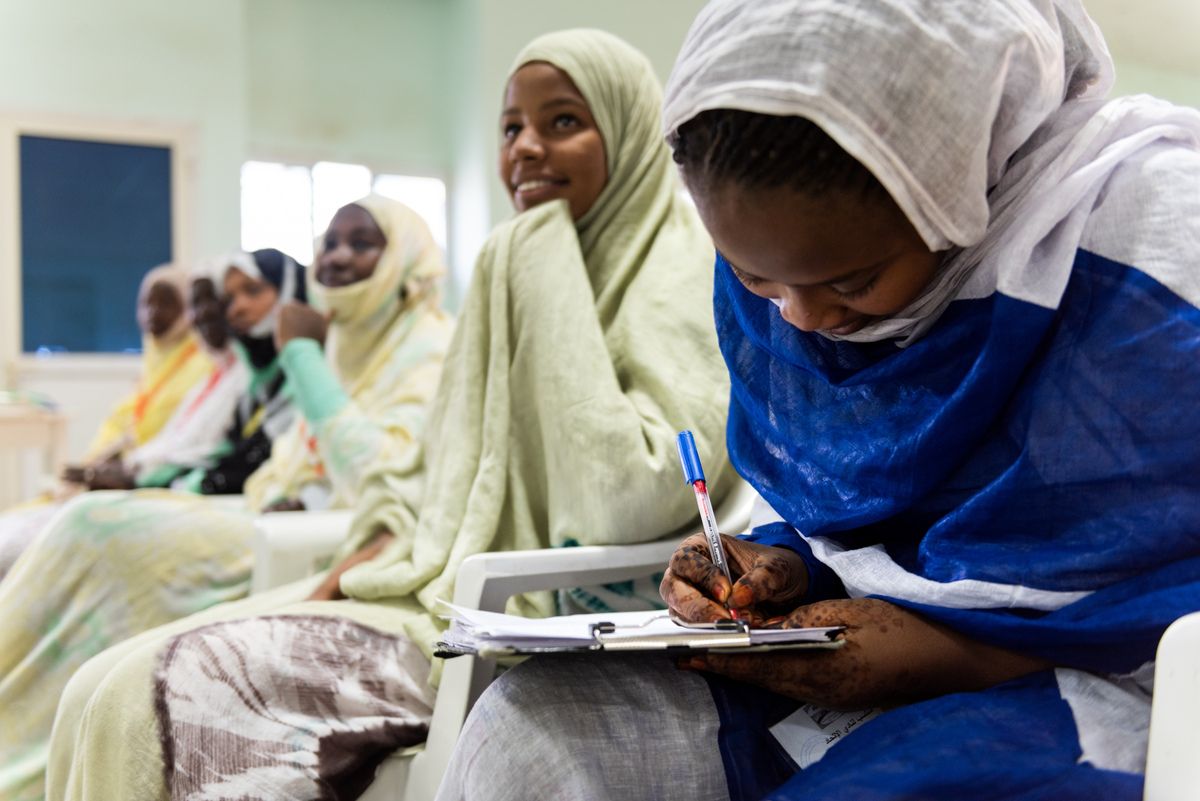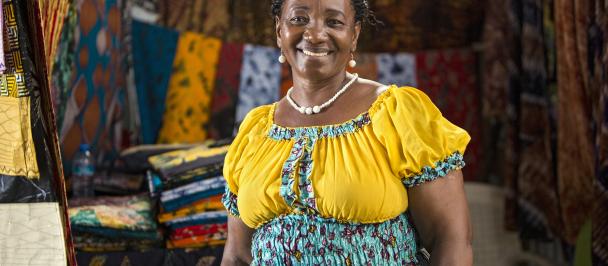Role models in international organizations create a generation of young women and girls that can now realistically dream about leadership. Photo: UNDP Mauritania/Freya Morales
In September 1995, as a recent graduate straight out of Columbia University, I made my way to Beijing to contribute to debates on women as creators of peace and agents of change in their communities. The excitement was palpable – witnessing firsthand a new movement for women emancipation. I went on to build a career in the United Nations – which, looking back, was, in part, thanks to Beijing.
In 1995, it sounded like a distant dream that we could imagine a world in which women’s rights are human rights. That we could look beyond tokenism and push towards parity – at work, in boardrooms, in politics, at home. At that time,muchfewer women were key figures in decision making.
Twenty-five years on and we have made important progress: from some women presidents in Africa, to a 50-50 count in cabinet composition – with Africa having 4 out of the 12 countries that boast of this globally (Ethiopia, Rwanda, Seychelles and South Africa).
Gains were not bequeathed from philanthropic well-wishers. It has taken hard work, grit and perseverance: pushing the door open, bringing your own seat to the table, and where no doors or windows exist, bringing walls down, to get women in.
In the United Nations, the drive for gender parity has, for the first time in institutional history, been attained at senior level. All of the Chief Executives of the UN’s Regional Economic Commissions are women. We have a Feminist in Chief at the helm of the UN (Antonio Guterres), ably deputized by an outstanding leader and gender activist (Amina Mohammed). In my own organization, UNDP, Administrator Achim Steiner’s visionary leadership has also delivered gender parity across organization’s senior management. Attaining parity at all levels remains the goal.
More and more, we see trailblazing performance by the women with platforms – at the helm of UN organizations. What this does is validate their resolve for impactful leadership, while also inspiring those that watch them as mentors. It creates a generation of young women and girls that can now realistically dream about leadership.
But the quest for generation equality in our world is far from easy sailing and there is a pushback. Legal protection against rape and domestic abuse is regressing in some countries. And we see policies penalizing women in reproductive decisions. More so, as UNDP’s 2019 Human Development Report reveals, only 14% of women and 10% of men have no gender social norm bias. Despite many of the increments in leadership, only 24% of the world’s parliamentarians are women.
At the heart of this is a power gap – anchored in a bipolar world in which women continue to be viewed as less deserving. And one shaken by what movements like #Metoo continue to do. It is an unsettling reality that a good part of half of the world still thinks there are echelons to which the other half must never aspire – because they are women. As the UN Secretary General Antonio Guterres puts it, it comes from centuries of discrimination and deep-rooted patriarchy that created a yawning gap in our economies, political systems and corporations.
But then you have Greta Thunberg and Vanessa Nakate – young climate justice activists that refuse to be held back by gender, age or race. This new force of young leaders is a welcome complement in the era of Amina Mohammed and Phumzile Mlambo-Ngcuka – some of the leading women of our time.
When I travel around Africa, the stories that encourage me the most are similar to these: of young women and girls who are saying no to an unequal world. They are what #GenerationEquality is truly about: From Ethiopia’s Sole Rebels CEO, Ms. Bethlehem Alemu to Zimbabwe’s Ecocash CEO, Ms. Natalie Payida Jabangwe, or to Nigeria’s CEO of LifeBank, Ms. Temie Giwa Tubosun. This generation is determining its own future – seeking equity and not aid; creating successful businesses and taking their communities with them. I am inspired by these young women, and many others like them, because they rise by lifting others.
As we celebrate International Women’s day– I am energized that for many of us, it is not a one-day event. We cast a vote, every day, for women’s empowerment through decisions in business, social enterprise and politics. These decisions will guarantee that the world in which my 9 year-old daughter grows will allow her to reach her full potential – because she is a woman.
I maintain hope because in Africa’s young women is a movement – a stubborn hope to stay the course.
I am excited about what this means for UNDP and for the future of development in general – because in many ways it requires putting aside the box – and working with this wind of change.

 Locations
Locations

